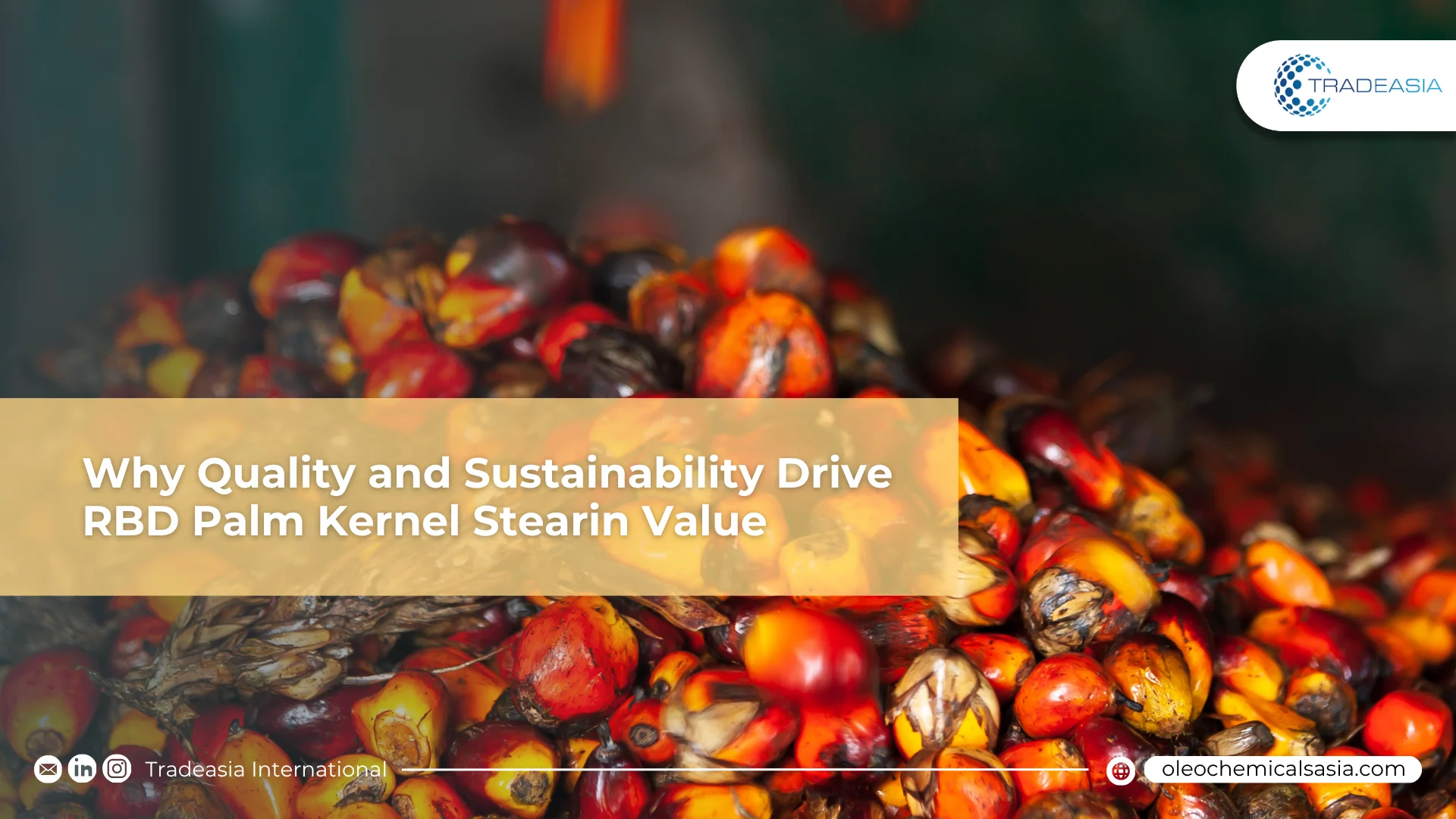The New Currency: Why Quality and Sustainability Drive RBD Palm Kernel Stearin Value

Table of Content
-
The Quality Mandate and Its Bottom Line
-
From a Green Choice to a Market Imperative
In the forward-thinking world of international trade, the definition of a "valuable" product like RBD Palm Kernel Stearin is undergoing a profound transformation. While price will always be a key factor, a new and powerful currency has emerged, built on the pillars of quality, sustainability, and transparency that define the product's journey from seed to sale. For businesses that want to secure their supply chains for the future, partnering with a supplier like Tradeasia International, who delivers a final product defined by these values, is no longer optional—it's essential.
The Quality Mandate and Its Bottom Line
The final quality of RBD Palm Kernel Stearin is not determined at the end of the process, but at the very beginning. To produce a premium-grade final product, the raw material feedstock must meet stringent, non-negotiable quality standards. The globally accepted specification requires that the precursor oil has a Free Fatty Acid (FFA) level below 3.5%. Attempting to produce stearin from a lower-grade feedstock with an FFA above 5% would not only incur raw material penalties of $15 to $25 per ton but would also result in a lower quality, less functional RBD Palm Kernel Stearin or require higher refining costs, directly impacting the bottom line.
The smartest companies are realizing that a sustainable supply chain isn't a cost center; it's the ultimate competitive advantage.
From a Green Choice to a Market Imperative
The demand for verifiable sustainability is reshaping the market for finished oleochemicals like RBD Palm Kernel Stearin. The proof is in the data: the volume of RSPO-certified palm kernels—the origin of any certified final product—is growing at an accelerated pace of 12% annually as of October 2025. This growth is a direct response to inflexible sourcing mandates from the world’s largest consumer brands, who have committed to 100% deforestation-free supply chains by 2030. To provide this assurance for the RBD Palm Kernel Stearin they sell, major agribusinesses have invested over $500 million in traceability technologies. This isn't just about ethics; it's about market access. Increasingly, an uncertified product is a product with no premium buyer.
Sources:
-
Sustainable Sourcing and Traceability in Palm Oil - Oleochemicals Asia
-
Official Reports and Market Progress Data - Roundtable on Sustainable Palm Oil (RSPO)
-
Journal of Cleaner Production - Elsevier

Leave a Comment